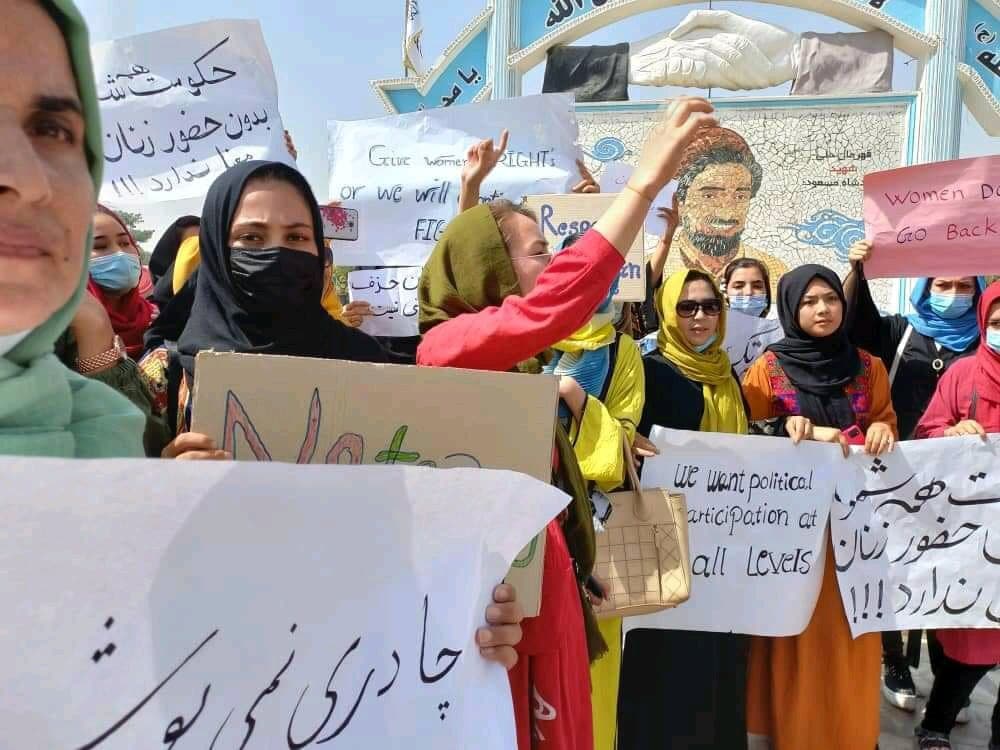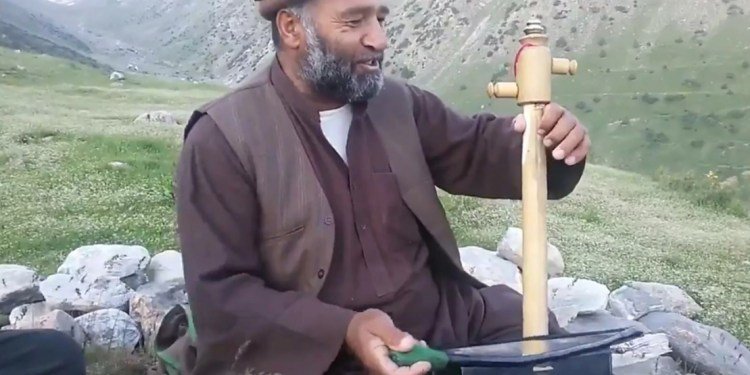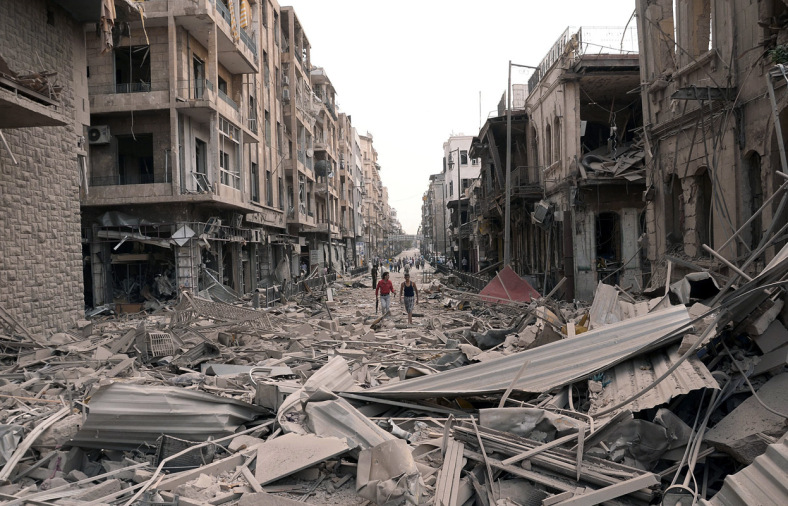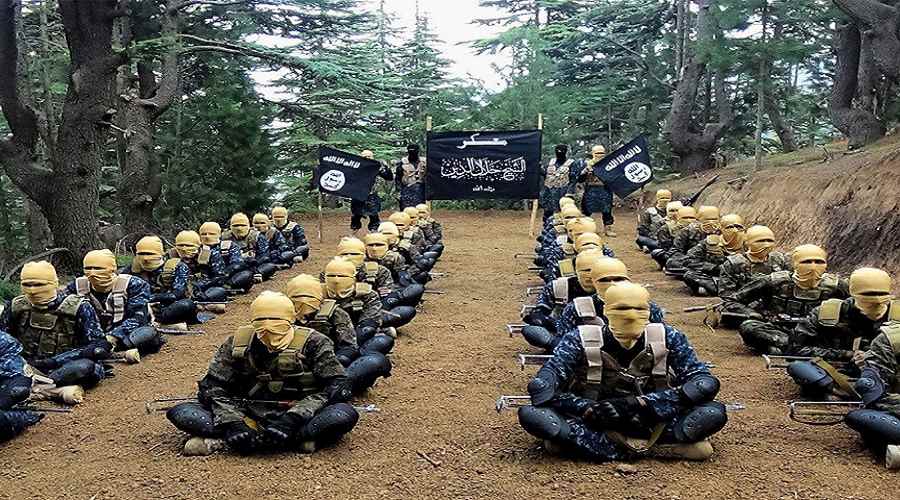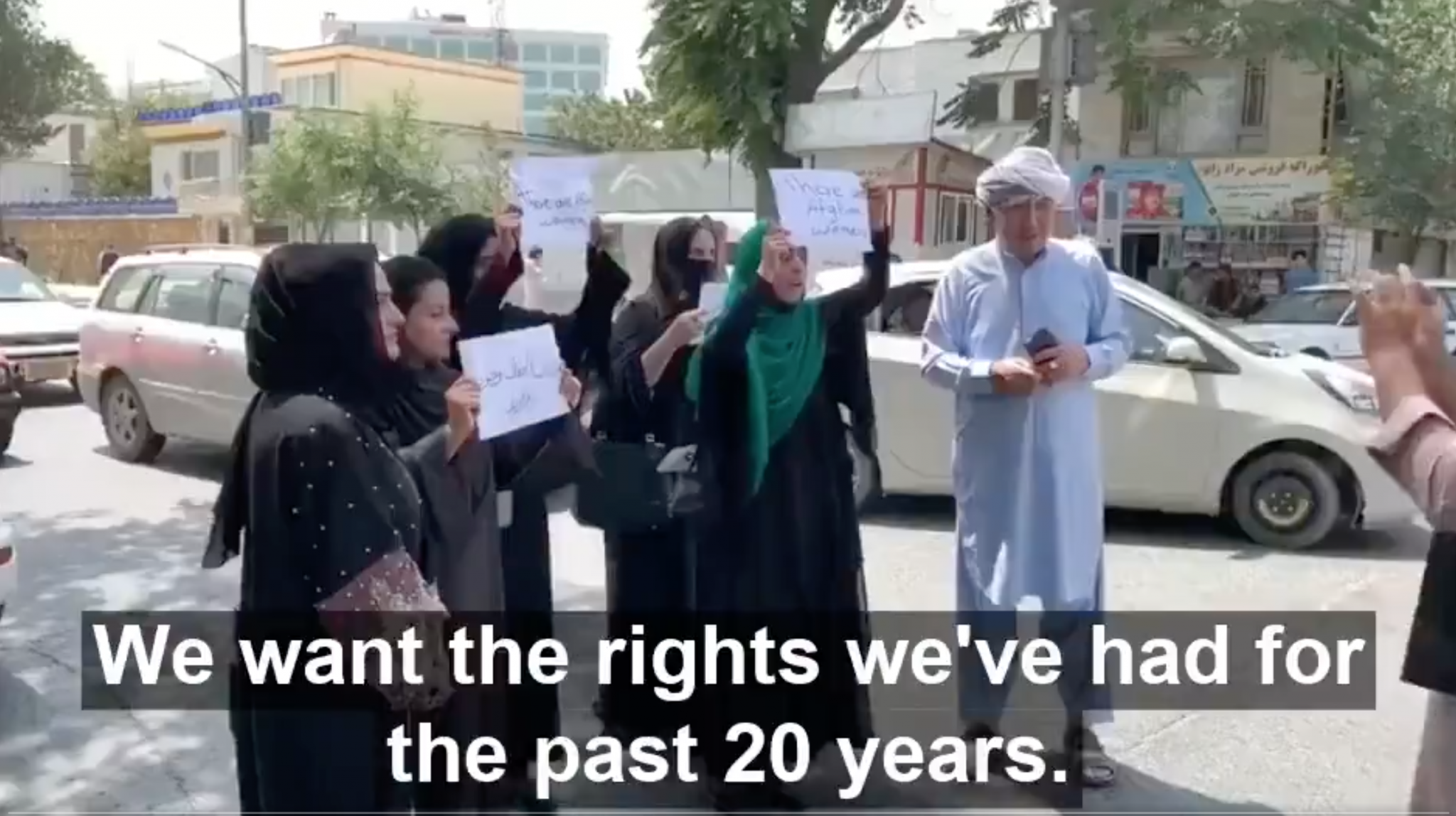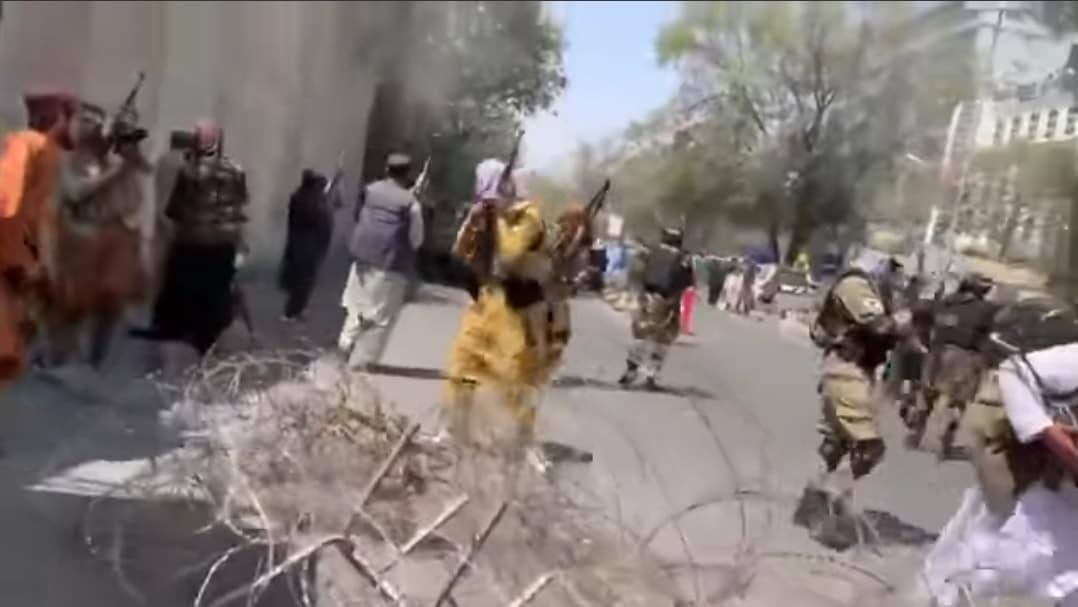
Taliban repress anti-Pakistan protest in Kabul
The Taliban used gunfire, beatings and arrests to disperse scores of protesters who marched through Kabul—the largest demonstration the Afghan capital has seen since the militant group seized power last month. Videos shared on social media showed activists shouting in support of resistance fighters in the Panjshir Valley—and chanting against Pakistan, which they view as backing the Taliban. In the footage, protesters can be heard shouting “Death to Pakistan” as they marched toward the presidential palace. (Photo: Khaama)




